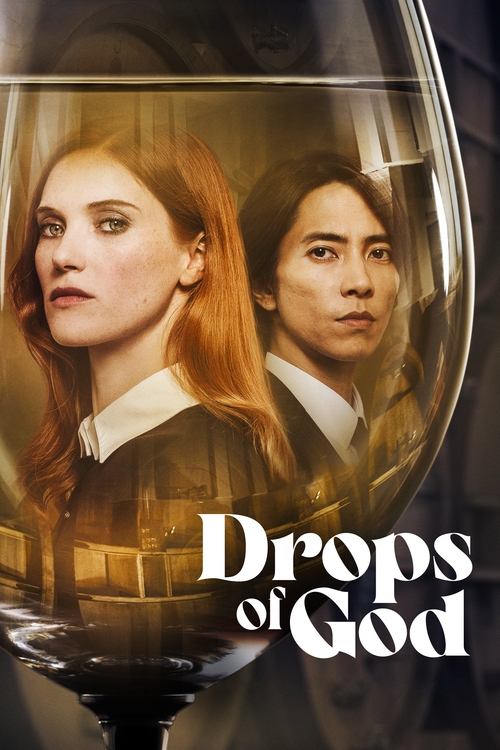
Ask Your Own Question
What is the plot?
The episode opens with a flashback to the night of the murder of Barry Allen's mother, Nora. Young Barry witnesses a mysterious figure, later revealed to be the Reverse-Flash, kill his mother while his father, Henry Allen, is wrongfully accused and imprisoned for the crime. This traumatic event shapes Barry's life, leading him to become obsessed with finding the truth about his mother's death and clearing his father's name.
Fast forward to the present day, Barry is now a forensic scientist working for the Central City Police Department. He is socially awkward and has a crush on his childhood friend, Iris West, who is now a reporter. Barry's life takes a turn when he attends a particle accelerator demonstration at S.T.A.R. Labs, where Dr. Harrison Wells, Caitlin Snow, and Cisco Ramon are unveiling their groundbreaking technology. During the demonstration, a malfunction occurs, causing an explosion that releases a wave of dark matter, which strikes Barry and knocks him unconscious.
After the explosion, Barry wakes up in the hospital nine months later, having been in a coma. He discovers that he has developed super-speed abilities. Initially, he struggles to control his powers, leading to a series of humorous and awkward moments as he learns to run fast. Barry confides in his mentor, Joe West, who is also Iris's father, about his abilities and his desire to use them to help others.
As Barry begins to embrace his new identity, he learns about a series of strange occurrences in Central City, including a man named Clyde Mardon, who has the ability to control the weather. Mardon is revealed to be a metahuman, a term used for individuals affected by the particle accelerator explosion. Barry decides to take on the mantle of "The Flash" to stop Mardon and protect the city.
In a pivotal scene, Barry dons a makeshift costume and confronts Mardon, who is wreaking havoc in the city. The confrontation is intense, with Mardon using his powers to create storms and lightning. Barry struggles to keep up with Mardon's attacks but ultimately manages to outsmart him by using his speed to create a diversion. He successfully subdues Mardon, showcasing his newfound abilities and determination to be a hero.
After the battle, Barry returns to S.T.A.R. Labs, where he meets Dr. Wells, Caitlin, and Cisco. They express their support for Barry and his mission to protect Central City. Dr. Wells, in particular, shows a keen interest in Barry's potential, hinting at a deeper connection between them.
The episode concludes with Barry visiting his father's prison cell, where he promises to find the real killer of his mother. This moment highlights Barry's internal motivation to seek justice and closure for his family's tragedy. As he leaves the prison, he looks out over Central City, determined to embrace his role as The Flash and protect the city from future threats.
What is the ending?
At the end of "The Flash" Season 1, Episode 1 titled "Pilot," Barry Allen, after being struck by lightning and gaining super-speed abilities, successfully saves his city from a dangerous metahuman named Clyde Mardon, who can control the weather. Barry embraces his new identity as The Flash, while his adoptive father, Joe West, and his friend, Iris West, begin to understand the implications of his transformation. The episode concludes with Barry looking forward to using his powers for good, while a mysterious figure, Dr. Harrison Wells, watches from a distance, hinting at future conflicts.
As the episode nears its conclusion, the tension escalates in Central City. Barry Allen, having just awakened from a nine-month coma after being struck by lightning during a particle accelerator explosion, is still grappling with the reality of his newfound abilities. He is determined to understand what happened to him and to use his powers to help others.
In the final act, Barry learns that Clyde Mardon, a metahuman who can manipulate the weather, is wreaking havoc in the city. Mardon is seeking revenge against those he believes wronged him, and he poses a significant threat to the citizens of Central City. Barry, with the support of his friends and his mentor, Dr. Harrison Wells, prepares to confront Mardon.
As the storm rages, Barry dons a makeshift suit and races into action. The scene is charged with urgency as he navigates through the chaos, using his speed to save civilians from falling debris and dangerous weather conditions. His internal motivation is clear; he wants to prove himself and honor the legacy of his mother, who was murdered when he was a child.
In a climactic showdown, Barry faces Mardon. The confrontation is intense, with Mardon unleashing powerful winds and lightning strikes. Barry, fueled by determination and a sense of justice, taps into his speed, dodging Mardon's attacks with agility. The visual effects highlight Barry's incredible speed as he zips around, creating a whirlwind of motion.
Ultimately, Barry manages to outsmart Mardon, using his speed to create a diversion that allows him to land a decisive blow. Mardon is defeated, and the storm dissipates, leaving Central City safe once more. This victory marks a significant turning point for Barry; he embraces his identity as The Flash, realizing that he can make a difference in the world.
As the episode wraps up, Barry returns to his home, where he shares a heartfelt moment with Joe West, who has been a father figure to him. Joe expresses his pride in Barry, acknowledging the hero he is becoming. Meanwhile, Iris West, Barry's childhood friend and love interest, begins to see him in a new light, hinting at the complexities of their relationship moving forward.
In the final scene, the camera shifts to Dr. Harrison Wells, who is observing the events from a distance. His expression is enigmatic, suggesting that he has deeper knowledge of the forces at play in Central City. This moment foreshadows future conflicts and the overarching narrative of the series, as Wells' true intentions remain shrouded in mystery.
The episode concludes with Barry standing atop a building, looking out over Central City, embodying hope and determination. He is ready to embrace his role as a hero, setting the stage for the adventures and challenges that lie ahead. Each character's fate is intertwined with Barry's transformation; Joe becomes a supportive figure, Iris is drawn closer to Barry, and Wells emerges as a potential antagonist, all contributing to the rich tapestry of the story.
Is there a post-credit scene?
In the pilot episode of "The Flash," there is indeed a post-credit scene. This scene takes place in a dark, sterile laboratory where we see a figure working on a mysterious device. The camera pans to reveal Dr. Harrison Wells, who is a key character in the series. He is shown observing a series of monitors displaying various data and images related to the Flash and the events that have transpired.
As he watches, he appears contemplative and somewhat troubled, hinting at deeper motivations and secrets that will unfold throughout the series. The scene is charged with tension, as it suggests that Wells has knowledge of future events and possibly a connection to the larger narrative involving the Flash and the threats he will face. The atmosphere is heavy with intrigue, setting the stage for the complex relationships and conflicts that will develop in subsequent episodes. This moment leaves viewers with a sense of anticipation and curiosity about Wells' true intentions and the implications for Barry Allen's journey as the Flash.
What event causes Barry Allen to gain his super speed?
Barry Allen gains his super speed after being struck by lightning during a freak storm caused by the particle accelerator explosion at S.T.A.R. Labs. This event occurs while he is in a coma, and the lightning bolt interacts with the chemicals in the lab, giving him the ability to move at superhuman speeds.
Who is the main antagonist in the pilot episode of The Flash?
The main antagonist in the pilot episode is Clyde Mardon, a meta-human who gains the ability to control the weather after the particle accelerator explosion. He poses a significant threat to Central City, using his powers to commit crimes and seek revenge.
What motivates Barry Allen to become The Flash?
Barry Allen is motivated to become The Flash primarily by his desire to seek justice for his mother's murder, which he believes is connected to the same events that gave him his powers. He also wants to protect Central City from meta-human threats and honor the legacy of his father, who was wrongfully imprisoned for his mother's death.
How does Joe West react to Barry's return after the coma?
Joe West, who has raised Barry like a son, is initially overjoyed to see him awake after nine months in a coma. However, he is also protective and concerned about Barry's safety, especially as he learns about the dangers associated with Barry's new abilities and the meta-humans emerging in Central City.
What role does Iris West play in Barry's life in the pilot episode?
Iris West is Barry's childhood friend and love interest in the pilot episode. She is unaware of Barry's feelings for her and is focused on her own life, including her aspirations as a journalist. Her relationship with Barry is complicated by her father's protective nature and her own struggles with her feelings for another character, Eddie Thawne.
Is this family friendly?
The pilot episode of "The Flash" contains several elements that may be considered objectionable or upsetting for children or sensitive viewers. Here are some aspects to be aware of:
-
Violence: There are scenes of physical confrontations, including fights and the use of weapons. Some characters are shown being injured or in perilous situations.
-
Death: The episode includes references to death and loss, particularly concerning the main character's family. This theme may be emotionally heavy for younger viewers.
-
Intense Situations: There are moments of suspense and tension, including a significant accident involving a particle accelerator explosion that leads to chaos and destruction.
-
Fear and Anxiety: Characters experience fear and anxiety, particularly in relation to the dangers posed by the antagonist and the consequences of the explosion.
-
Mature Themes: The storyline touches on themes of grief, loss, and the quest for justice, which may resonate differently with younger audiences.
Overall, while "The Flash" is designed to be accessible to a wide audience, these elements may require parental guidance for younger viewers.

















